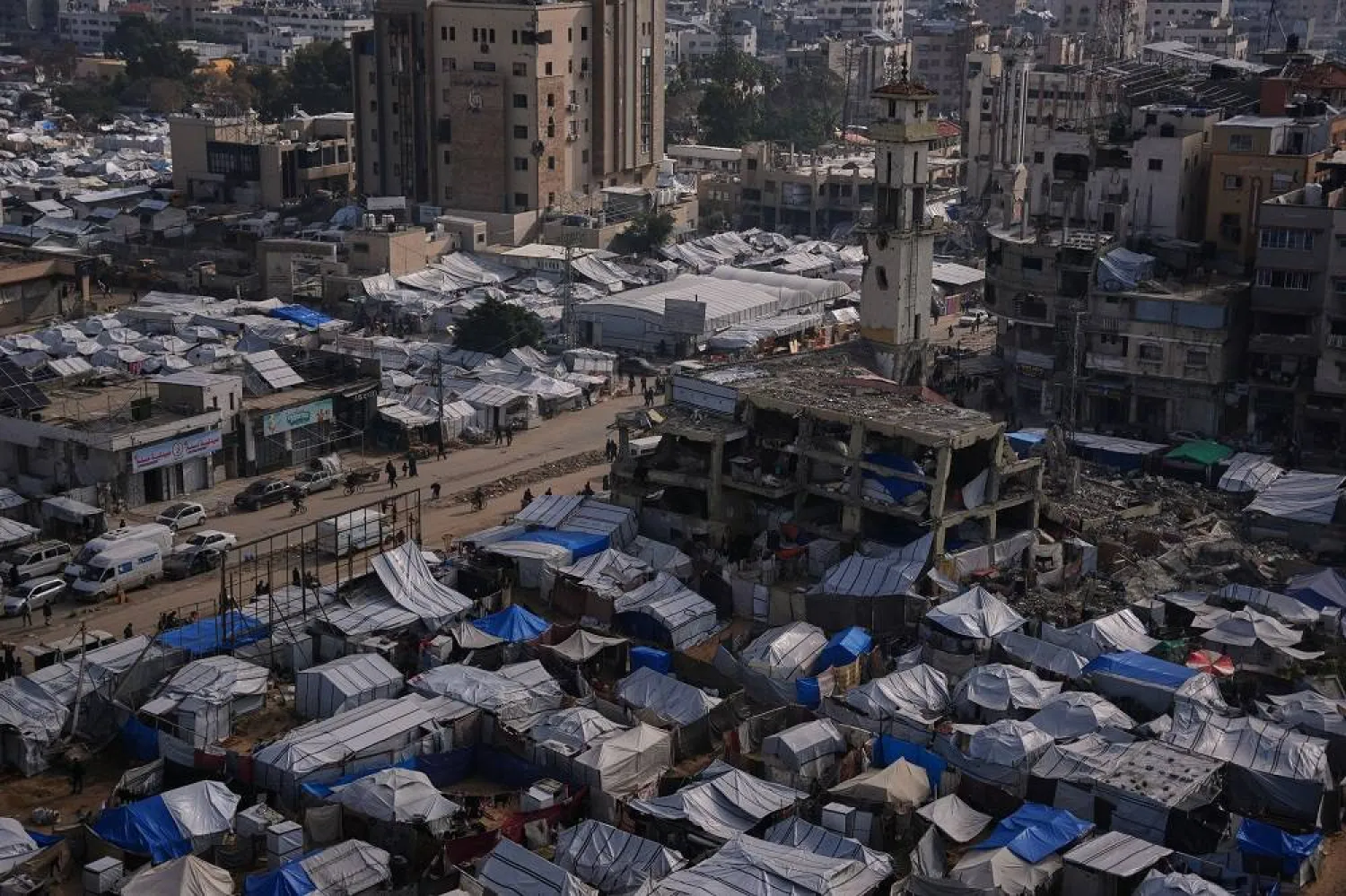Israel plans to ban 37 aid organizations from operating in Gaza from Thursday unless they hand over detailed information on their Palestinian staff, despite mounting criticism from the United Nations and the European Union.
Several NGOs have told AFP the new rules will have a major impact on food and medical shipments to Gaza, and humanitarian groups warn there is already not enough aid to cover the devastated territory's needs.
Israel's deadline for NGOs to provide the details expires at midnight on Wednesday.
"They refuse to provide lists of their Palestinian employees because they know, just as we know, that some of them are involved in terrorism or linked to Hamas," spokesman for the Ministry of Diaspora Affairs and Combating Antisemitism, Gilad Zwick, told AFP, naming 37 NGOs that had so far failed to meet the new requirements.
"I highly doubt that what they haven't done for 10 months, they will suddenly do in less than 12 hours," Zwick said. "We certainly won't accept any cooperation that is just for show, simply to get an extension."
For its part, Hamas, the armed Palestinian group which still controls part of Gaza, branded the Israeli decision "criminal behavior" and urged the United Nations and broader international community to condemn it.
Israel says the new regulation aims to prevent bodies it accuses of supporting terrorism from operating in the Palestinian territories.
A fragile ceasefire has been in place in Gaza since October, following a deadly war waged by Israel in response to Hamas's unprecedented attack on Israeli territory on October 7, 2023.
On Tuesday, Israel specified that "acts of de-legitimizing Israel" or denial of events surrounding Hamas's October 7 attack would be "grounds for license withdrawal".
Israel has singled out international medical charity Doctors Without Borders (MSF), alleging that it had two employees who were members of Palestinian groups Islamic Jihad and Hamas.
"We continue to seek reassurances and clarity over a concerning request to share a staff list, which may be in violation of Israel's obligations under international humanitarian law and of our humanitarian principles," MSF said, urging Israel to allow it to operate.
"We will be exploring all possible avenues to alter the outcomes of this decision."
Apart from MSF, some of the 37 NGOs to be hit with the ban are the Norwegian Refugee Council, World Vision International, CARE and Oxfam, according to the list given by Zwick.
- 'Guarantee access' -
On Wednesday, United Nations rights chief Volker Turk described Israel's decision as "outrageous", calling on states to urgently insist Israel shift course.
"Such arbitrary suspensions make an already intolerable situation even worse for the people of Gaza," he said.
The European Union warned that Israel's decision would block "life-saving" assistance from reaching Gazans.
"The EU has been clear: the NGO registration law cannot be implemented in its current form," EU humanitarian chief Hadja Lahbib posted on X.
UN Palestinian refugee agency chief Philippe Lazzarini said the move sets a "dangerous precedent".
"Failing to push back against attempts to control the work of aid organizations will further undermine the basic humanitarian principles of neutrality, independence, impartiality and humanity underpinning aid work across the world," he said on X.
UNRWA itself has faced the ire of Israeli authorities since last year, with Lazzarini declared persona non grata by Israel.
Israel had accused UNRWA of providing cover for Hamas, claiming that some of the agency's employees took part in the October 7, 2023 attack.
A series of investigations found some "neutrality-related issues" at UNRWA, the agency says, but insists Israel had not provided evidence for its headline allegation.
On Tuesday, the foreign ministers of 10 countries, including France and the United Kingdom, had already urged Israel to "guarantee access" to aid in the Gaza Strip, where they said the humanitarian situation remains "catastrophic".
In a territory with 2.2 million inhabitants, "1.3 million people still require urgent shelter support", the ministers of Britain, Canada, Denmark, Finland, France, Iceland, Japan, Norway, Sweden and Switzerland said.
While a deal for a ceasefire that started on October 10 stipulated the entry of 600 trucks per day, only 100 to 300 are carrying humanitarian aid, aid groups say.
COGAT, the Israeli defense ministry body responsible for Palestinian civilian affairs, said last week that on average 4,200 aid trucks enter Gaza weekly, which corresponds to around 600 daily.
Israel's ambassador to Belgium and Luxembourg, Idit Rosenzweig-Abu, said that 104 aid organizations had filed for registration according to the new guidelines.
Nine were rejected, while 37 did not complete the procedures, she said on X, insisting the registration process "intended to prevent the exploitation of aid by Hamas".









